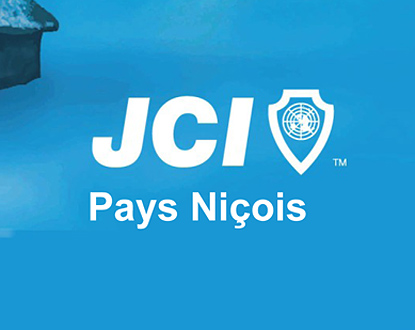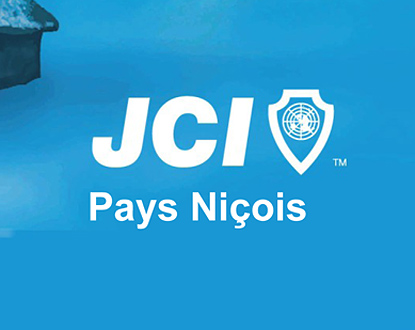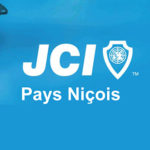On May 30th and 31st in Saint-Martin de Vésubie, the Young Economic Chamber of the Nice Region (JCE du Pays Niçois) joins the global effort of the members of the Junior Chamber International (JCI) to fight malaria by participating in the humanitarian campaign “Nothing But Nets” supported by the United Nations Foundation.
The principle is to send mosquito nets, priced at $10 each (about €8), to malaria-affected countries, covering their purchase, shipping, and training for the families using them. Each net protects a family of four.

All proceeds from the weekend will be donated to JCI for the “Nothing But Nets” campaign.
The Program
At an altitude of 1000 meters, nestled at the foot of the splendid Mercantour mountain chain, at the confluence of the Boréon and Madone de Fenestres torrents, the picturesque village of Saint Martin Vésubie invites you to discover the charm of the Upper Nice region through its exceptional natural sites, its particularly rich cultural and architectural heritage, and its warm and dynamic population.
In the Mercantour massif, within the magnificent setting of the Boréon valley, Saint Martin Vésubie hosts Alpha, the wolf park. Alpha, The Time of the Wolf, offers a 2 to 3-hour visit in the heart of a preserved natural site, to discover the wolf, its universe, and its history.
For two days, participants will compete in a spirit of camaraderie in teams of two in various events.
These events are accessible to everyone.
Event 1 – Mountain Bike/Running Race
Each team of 2 challengers will have a mountain bike to complete the proposed circuit.
Event 2 – Team Spirit
Fun workshops will test the participants’ team spirit: the Tandem Challenge, the Revisited Biathlon, the Mini Orientation Race in the village of Saint Martin Vésubie
Event 3 – Fun Evening
On the theme chosen by the JCI Challenge team, each team of challengers must propose a free artistic expression.
Event 4 – Orientation Race
Participants will engage in a real discovery and initiation course.
Malaria: A Global Danger
This evening, a little girl in Africa sleeps peacefully. But she is in grave danger. It is not about violence or war, but about the mosquitoes that transmit malaria. This evening, she will be bitten by a mosquito. Next week, she will die of malaria.
On average, a child dies every 45 seconds from malaria. 40% of the world’s population lives in areas at risk of malaria transmission. Between 300 and 500 million cases of malaria are recorded annually worldwide. About one million people die from this disease each year. Most of them are young children native to developing nations. Symptoms can range from fever to chills and joint pain, nausea, anemia, eye disorders, and seizures, depending on the stage, severity, and duration of the infection.
Severe cases can lead to coma or death. Children and the elderly are the most vulnerable to malaria. Malaria is a leading cause of illness and death among children in Africa. Africa accounts for 90% of all malaria deaths.
Human lives are not the only losses due to this scourge. Malaria prevents children from attending school, depletes medical resources, and results in an annual productivity loss estimated at 10 billion euros.
It weakens the very fabric of society: Malaria represents an annual cost of 12 billion dollars in healthcare expenses, lost workdays and education due to illness, reduced productivity due to brain damage, and loss in investment and tourism. From 1965 to 1990, the gross domestic product per capita increased only by 0.4% per year in many malaria-endemic countries, compared to 2.5% in other non-affected countries.
Mosquito Nets Save Lives
Several malaria drugs are currently available to treat and prevent this disease, but they are too expensive for developing countries and offer only a temporary respite from an imminent danger.
The medicines are not only dangerous due to their temporary effect, but the World Health Organization has also reported that no less than 40% of malaria drugs are counterfeits and offer absolutely no protection. Despite years of research, there is currently no widely available vaccine providing a high level of protection for a sustained period.
Instead of relying on expensive and potentially counterfeit drugs, JCI and the United Nations aim to save lives through transmission prevention.
Mosquito nets treated with insecticides combine prevention methods – avoiding transmission and killing the mosquito host – that also prevent transmission to others not covered by the nets. These inexpensive and insecticide-treated nets have been proven to reduce transmission by as much as 90% in regions with high coverage rates.
Nothing but Nets: Taking Action to Save Lives
Since 2003, JCI members have been working to advance the United Nations Millennium Development Goals (MDGs) worldwide. In 2008, JCI partnered with the United Nations Foundation and its campaign Nothing But Nets (www.nothingbutnets.net).
As part of this malaria fight campaign, JCI members pledged to raise $10 million, the equivalent of 1 million insecticide-treated nets, by 2015.
To achieve this ambitious goal, JCI members collaborate at local, national, and international levels to implement projects aimed at raising awareness about malaria in their community and raising funds for the purchase and distribution of mosquito nets.
If JCI and its partners in the global malaria fight can provide nets for all affected areas, we could reduce malaria cases from 500 million to just 35 million while continuing to work towards total eradication.
Sending Nets via the UN Foundation
After raising awareness and funds for the purchase and distribution of nets, the Nothing But Nets campaign collaborates closely with its UN partners, particularly UNICEF, the World Health Organization, and the UN High Commissioner for Refugees, to identify the regions where nets are most needed, ship them to Africa, and distribute them to families.



